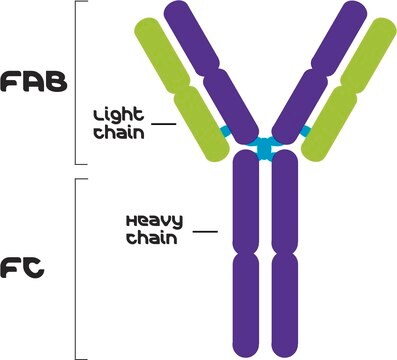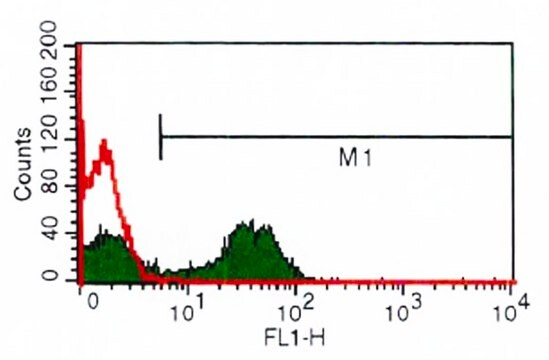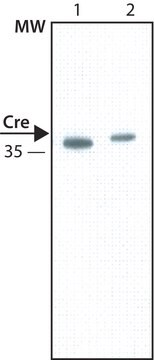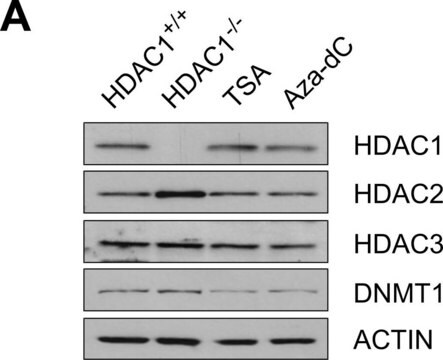SAB4700751
Monoclonal Anti-CD28 antibody produced in mouse
clone CD28.2, purified immunoglobulin, buffered aqueous solution
Synonym(e):
Anti-MFASCD28-P
About This Item
Empfohlene Produkte
Biologische Quelle
mouse
Konjugat
unconjugated
Antikörperform
purified immunoglobulin
Antikörper-Produkttyp
primary antibodies
Klon
CD28.2, monoclonal
Form
buffered aqueous solution
Speziesreaktivität
human, nonhuman primates
Konzentration
1 mg/mL
Methode(n)
FUNC: suitable
flow cytometry: suitable
immunoblotting: suitable
immunocytochemistry: suitable
immunohistochemistry: suitable
immunoprecipitation (IP): suitable
Isotyp
IgG1
NCBI-Hinterlegungsnummer
UniProt-Hinterlegungsnummer
Versandbedingung
wet ice
Lagertemp.
2-8°C
Posttranslationale Modifikation Target
unmodified
Angaben zum Gen
human ... CD28(940)
Allgemeine Beschreibung
Immunogen
Biochem./physiol. Wirkung
Leistungsmerkmale und Vorteile
Physikalische Form
Haftungsausschluss
Sie haben nicht das passende Produkt gefunden?
Probieren Sie unser Produkt-Auswahlhilfe. aus.
Empfehlung
Lagerklassenschlüssel
10 - Combustible liquids
Flammpunkt (°F)
Not applicable
Flammpunkt (°C)
Not applicable
Analysenzertifikate (COA)
Suchen Sie nach Analysenzertifikate (COA), indem Sie die Lot-/Chargennummer des Produkts eingeben. Lot- und Chargennummern sind auf dem Produktetikett hinter den Wörtern ‘Lot’ oder ‘Batch’ (Lot oder Charge) zu finden.
Besitzen Sie dieses Produkt bereits?
In der Dokumentenbibliothek finden Sie die Dokumentation zu den Produkten, die Sie kürzlich erworben haben.
Unser Team von Wissenschaftlern verfügt über Erfahrung in allen Forschungsbereichen einschließlich Life Science, Materialwissenschaften, chemischer Synthese, Chromatographie, Analytik und vielen mehr..
Setzen Sie sich mit dem technischen Dienst in Verbindung.








